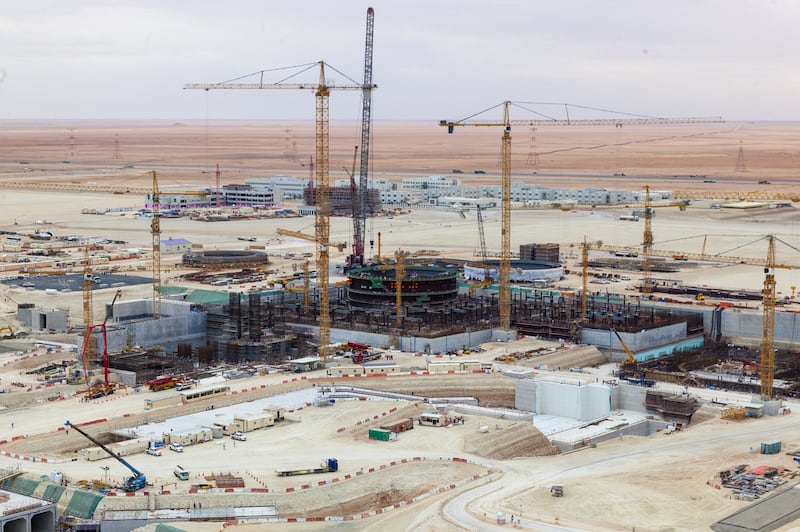ABU DHABI // The UAE vowed to set the highest possible safety standards as it outlined the progress of its nuclear power programme to the UN.
The nation’s permanent representative to the International Atomic Energy Agency addressed the nuclear watchdog’s annual general conference in Vienna on Wednesday.
Ambassador Hamad Al Kaabi said the country had learnt lessons from the Fukushima Daiichi disaster in Japan in 2011.
“We welcome all efforts made by the director general [of the IAEA] in response to Fukushima and the implementation of the IAEA nuclear safety plan, which the UAE is fully committed to,” Mr Al Kaabi said.
He was addressing delegates at the 57th session of the general conference of the IAEA, state news agency Wam reported.
Mr Al Kaabi, a board member of the Federal Authority for Nuclear Regulation, said the Fukushima disaster – the world’s worst nuclear accident since Chernobyl in 1986 – had highlighted the need to strengthen nuclear safety worldwide.
He emphasised that the UAE had made a commitment to leading the way on this issue and setting an example for other IAEA members.
“The UAE is an active state party in the review process of the Convention of Nuclear Safety and to the efforts aiming at strengthening its implementation,” Mr Al Kaabi said. “I take this opportunity to call on countries with nuclear facilities who have not yet done so to join and implement the convention at an early date.”
The Barakah power plant makes the UAE the first country among the newcomers to the nuclear sector to begin building such a facility for 27 years.
The nuclear power programme is being developed to cater to the rising demand for electricity across the country.
Work on the first nuclear reactor began last July and work on a second unit at the US$20 billion (Dh73.5bn) nuclear plant began in May this year.
All four nuclear power plants are due to be operational by 2020.
The IAEA director general, Yukiya Amano, visited the site in January and said “safe and consistent progress” was being made on the nuclear energy programme.
Mr Al Kaabi said nuclear security was as high a priority for the UAE as any other part of the programme, and that the IAEA had a pivotal role to play in ensuring the importance of this was recognised internationally, and that training opportunities were provided.
“The UAE is of the view that nuclear energy can only be pursued through a responsible and transparent approach,” Mr Al Kaabi said.
He also told the assembly that his delegation was “deeply disappointed” at the lack of progress towards establishing a nuclear weapon-free zone in the Middle East.
Abu Dhabi will host the IAEA international conference on the safety and security of radioactive sources next month.
jbell@thenational.ae






